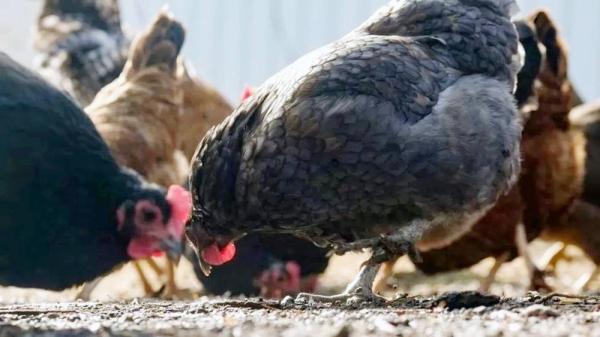
A rare case of bird flu has been detected in a person living in south-west England, health officials have confirmed.
The UK Health Security Agency (UKHSA) said the unnamed person acquired the infection from close and regular contact with a large number of infected birds, which they kept in and around their home over a prolonged period of time.
Bird-to-human transmission of avian flu is very rare and has occurred only a small number of times in the UK previously.
The UKHSA said only a small number of contacts were involved, all of whom were professionals working as part of the incident management team.
All contacts of the person, including those who visited the premises, had been traced and there was no evidence of onward spread of the infection to anyone else, it said.
The infected person is well and self-isolating, and the risk to the wider public from avian flu remains very low.
Prof Isabel Oliver, the chief scientific officer at UKHSA, said: “Currently there is no evidence that this strain detected in the UK can spread from person to person, but we know that viruses evolve all the time and we continue to monitor the situation closely. We have followed up all of this individual’s contacts and have not identified any onward spread.
“It remains critical that people do not touch sick or dead birds, and that they follow the Defra [Department for Environment, Food and Rural Affairs] advice about reporting.”
There have been a large number of outbreaks of the H5N1 strain of avian flu in birds across the UK, and alerts have been issued to bird owners.
The UK’s chief veterinary officer, Christine Middlemiss, said: “We are seeing a growing number of cases in birds on both commercial farms and in back yard flocks across the country. Implementing scrupulous biosecurity measures will help keep your birds safe.”
Prof Mike Tildesley, a professor in infectious disease modelling at the University of Warwick, said: “This is clearly going to be big news but the key thing is that human infections with H5N1 are really rare and they almost always occur as a result of direct, long-term contact with poultry. There has never been any evidence of sustained human-to-human transmission of H5N1, so at present I wouldn’t consider this to be a significant public health risk.”












